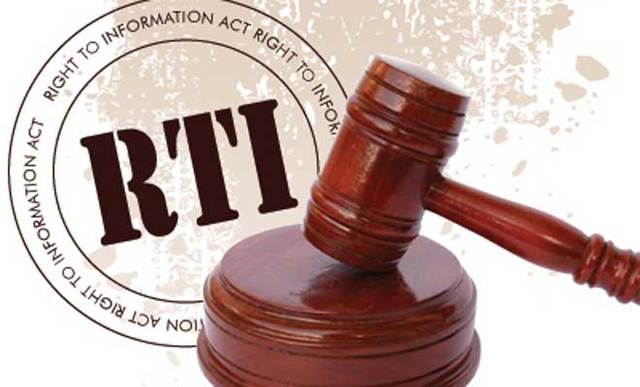Since coming into force the Right to Information Act, 2005 has been a vital legislation protecting the democratic polity of the nation. Foremost, it enables and empowers any citizen of India to demand information from public authority with the reply expected within a reasonable span. The Act also requires that public authorities make such records computerized and available for wider public dissemination. The Act has thus not only become an instrument of accountability and transparency but also for freedom of expression and participation in the nation’s progress for the citizens. It has made the political discourse vibrant, enabled participation of civil society and non-state actors and has been critical in ensuring a more informed citizenry.
In fact, this legislation has been so successful in exposing various scams and holding authorities accountable that a lot of RTI activists have been unfortunate victims of attacks. They have been threatened, assaulted and even murdered. The state of Gujarat holds the dubious distinction of having the largest number of such attacks. This year Nanjibhai Sondarva (35), a resident of Manekvada village in Kotda Sangani taluka of Rajkot district who was clubbed to death after filing at RTI application demanding transparency about the funds spent on the construction of a road in his village. Most recently in July, RTI activist Valmiki Yadav and his friend were shot dead in Jamui, Bihar for exposing several financial irregularities in public welfare schemes and development works in the district. In another similar incident, Ashish Dahiya and his cousin were killed in Sonepat Haryana by the Sarpanch over suspicion that Dahiya had sought details about him through RTI.
Commonwealth Human Rights Initiative maps such attacks on a regular basis across India and terms it ‘Hall of Shame’. It shows that this year alone around 13 RTI petitioners have been killed or have faced an assault. Criticism of the state in failing to protect the RTI petitioners has been increasing but to little avail. Thus in this context when the government proposes amendments to the RTI Act it becomes especially worrisome.
One of the major amendment proposed is that “The salaries, allowances and other terms and conditions of the Chief Information Commissioner and the Information Commissioners and the State Chief Information Commissioner and the State Information Commissioners shall be such as may be prescribed by the Central Government.” As per the current rule, the salaries of the Information Commissioner is fixed by the law and the Chief Information Commissioner gets a salary equal to the Chief Election Commissioner and the State Information Commissioner gets a salary equal to Chief Secretary of the state government. The tenure of the Information Commissioner at the centre and the state will also be on the discretion of the government as per proposed amendments.
We promise to bring Advocate and Journalist Protection Act: Rajasthan Congress chief Sachin Pilot
These proposed changes are not just seen as a way of diluting and decreasing the powers and autonomy of the Information Commissioners but also making them subject to the whims of the political party in power at the centre or the state. Moreover, activists and civil society groups have contended that this blatant attempt to weaken the RTI Act is being done with zero consultations with other groups. Noted activists Aruna Roy and Nikhil Dey write, “It is a bitter irony that a little over a decade after the RTI Act was operationalised, proposed amendments have been kept secret; there has not even been a hint of public consultation.”
BJP protesters smear black oil Tharoor’s office over ‘Hindu Pakistan’ remark
Various opposition political leaders have attacked these proposed amendments. Congress President Rahul Gandhi wrote on Twitter, “The BJP believes the truth must be hidden from the people and they must not question the people in power. The changes proposed to the RTI will make it a useless Act.” CPI leader D Raja stated, “In its current form, the Bill is not acceptable. It will defeat the very purpose of the Right to Information Act. The government is in a hurry to pass the Bill, we can’t let that happen,” CPI(M) leader Sitaram Yechury also criticized the amendments, “Modi govt wants to completely destroy our right to know anything. After all, how else will jumlas and fudged data be pushed if the truth is allowed to come out.”
Right to Information Act has been one of the most vital legislation for bringing in accountability and transparency in governance and the state. It has enabled people to become more closely engaged with the democratic processes as work. The government must not be allowed to get away with diluting this empowering instrument.


















